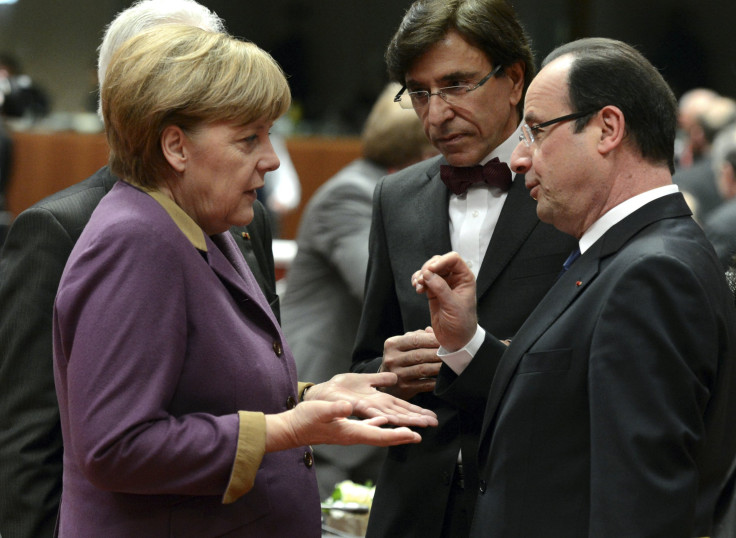Standard & Poor's Credit Rating Agency Cuts The Republic Of France's Long-Term Sovereign Debt Rating

Standard & Poor’s downgraded France’s long-term sovereign credit rating to AA from AA+ on Friday, criticizing economic reforms initiated by President Francois Hollande, and stated that high unemployment has further reduced support for unpopular but necessary tax reform.
S&P reaffirmed it’s A-1+ short-term credit rating and said the outlook for the country is stable -- meaning that there is less than a one-in-three chance that the ratings agency will raise or lower its ratings over the next two years.
“We believe the French government’s reforms to taxation, as well as to product, services, and labor markets will not substantially raise France’s medium-term growth prospects, and that ongoing high unemployment is weakening support for further significant fiscal and structural policy measures,” S&P wrote in its press release.
S&P praised President Hollande’s efforts to strengthen the country’s fiscal oversight since taking office in May 2012, including signing into law a public finance planning act and establishing a high council for public finances. But S&P criticized Hollande's unwillingness to cut public spending in the face of rising unemployment.
Other positive steps taken by the government of France include introducing corporate payroll tax credits and reaching agreement on labor market reforms. But these reforms are insufficient for unlocking France’s economic growth potential, S&P said.
At 53 percent of GDP, France has the highest tax burden of any OECD member state outside of the Nordic region. S&P forecasts that this figure will remain steady through 2015. France’s government spending accounts for more than 56 percent of GDP, the highest in the euro zone and only surpassed by Denmark within the OECD.
France’s underlying strengths include high levels of wealth and productivity, economic diversification and a stable financial sector. The country also has high private-sector savings rates and incomes, a sign of political stability, and a highly skilled and well-educated workforce.
© Copyright IBTimes 2024. All rights reserved.











